Without power for 10 hours
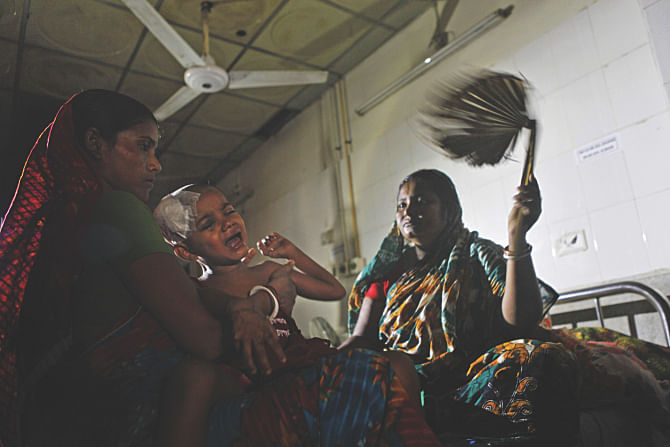

The country plunged into the worst blackout in seven years yesterday as a malfunction in Bheramara power plant snapped the Bangladesh-India transmission line, triggering failures throughout the national grid.
People across the country were left without power almost for 10 hours since 11:30am, overshadowing the government's much-lauded achievement in the sector since 2009.
"A sudden technical glitch in the power system in Bheramara led to collapse of the entire power grid," said Nasrul Hamid, state minister for power and energy.
The power import from India began in October 2013 through the 400-kilovolt transmission line, running from Baharampur in West Bengal to Bangladesh's Bheramara.
The trouble started with a circuit failure in the Bheramara plant around 11:30am, said a senior official of Power Development Board.
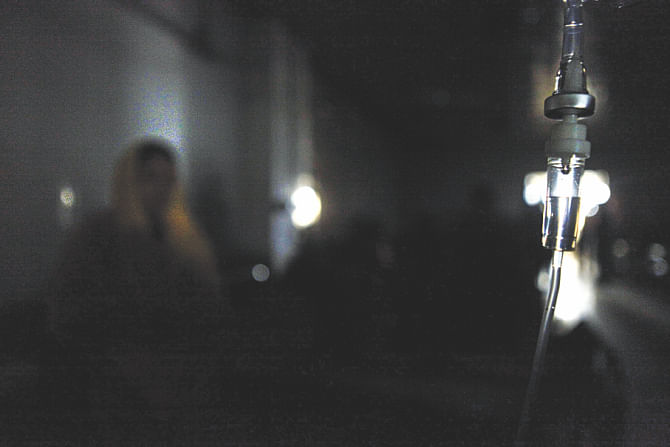
“This sudden collapse of interconnection created imbalance in the national grid, which is linked to all power plants of the country.”
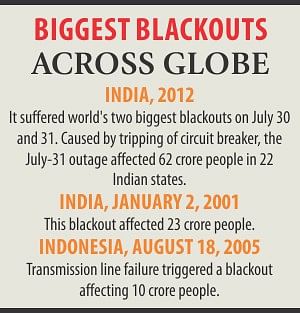
The sudden vacuum in the national grid caused disruption to production at Ashuganj Power Station and other plants in the country. All of them stopped operation at once.
Later, the India-Bangladesh interconnection line was separated from the national grid for repairs.
After several failed attempts to restart the plants, supply could be restored last night.
Around 9:30pm, Masum-Al-Beruni, managing director of Power Grid Company of Bangladesh (PGCB), said electricity was back in parts of the capital's Gulshan, Banani, Uttara and Motijheel and Mirpur.
The supply resumed partially in Chittagong, Rajshahi and Sylhet and restoring power in Khulna will begin soon. "We hope that this time there will not be any further disruption," he told The Daily star over the phone.
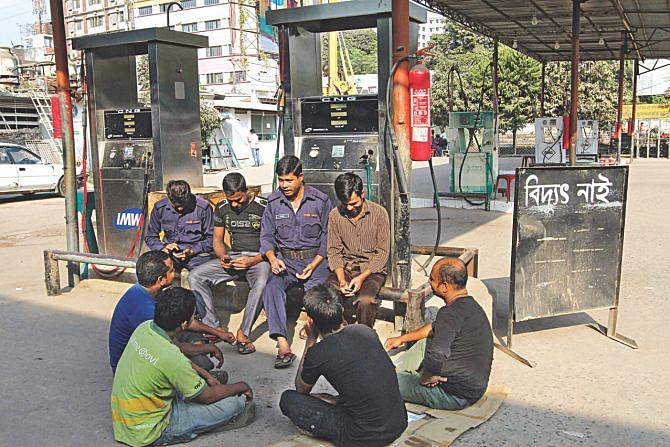
Power generation was 1,800MW as of 9:15pm against the demand for more than 6,000MW. "The generation is increasing gradually," said Beruni.
Saleha Akter, a resident of Mohammadpur, told this correspondent that electricity was back to her house around 9:00pm.
Contacted around 1:30am today, Nasiruddin, an official of Dhaka Power Distribution Company (DPDC) control room, said the supply resumed almost everywhere in Dhaka city by around 1:00am.
Tawfiq-e-Elahi Chowdhury, energy adviser to the prime minister, said the supply will be normal by this afternoon.
A senior official of the state-owned Power Grid Corporation of India Ltd (PGCIL), which manages the electricity transmission line between the two countries, said there is absolutely no problem on their side.
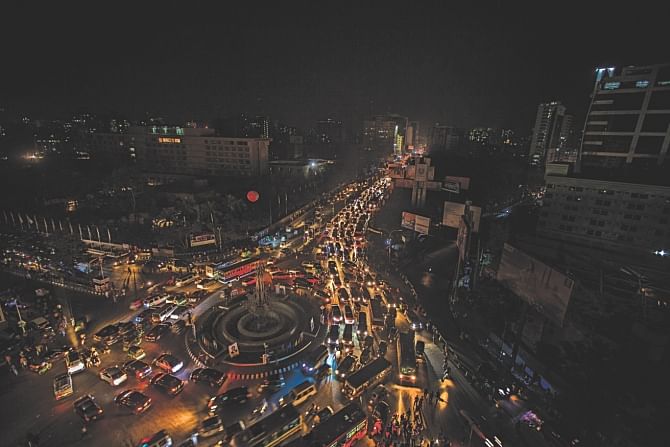
Power Grid's Executive Director (Operations) RP Sasmal told reporters that a problem of the Bangladesh substation has caused non-drawl of power from India, reported our new Delhi correspondent.
In Dhaka, a seven-member committee has been formed to probe the power outage. The committee, led by Additional Secretary Ahmed Kaikaus, has been asked to submit a report by three days.
Meanwhile, in the social media, many expressed disappointments at the country's power management.
In a Facebook post, Khondkar Saleque, a Bangladeshi energy expert working for the mining ministry of Afghanistan, said, "It is silly not to have contingency arrangements in power grid to avoid cyclic impacts from an incident which happened today in national power grid."
"For a 450MW power transmission loss from India, power generation plants must not have gone out of production. There are technologies to cater for such glitches," he wrote.
Life came to a standstill with collapse of the national power system, which lights up more than 60 percent of households.
Industrial production and businesses, big and small alike, were also hit hard with shopping malls and markets had to closed their shutters.
Asif Ibrahim, a leading apparel exporter, said production was almost halved due to the power cut, as the backup generators could not run the factories without any break.
The situation was same at almost all factories in the industrial hubs in Dhaka and Chittagong.
Electricity supply was not available at the Bangabhaban and the Gono Bhaban.
The last time the country experienced a total blackout was in December 2007.
Since the Awami League-led grand alliance took office winning the 2008 election, the power sector has been given the highest priority.
There are more than a hundred power plants across the country. Together with imported power from India, these plants can pump up to 7,400MW electricity.

 For all latest news, follow The Daily Star's Google News channel.
For all latest news, follow The Daily Star's Google News channel. 



Comments